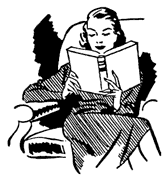|
Unit On Argumentation and Persuasion
This is a unit on argumentation on persuasion, intended to foster critical
analysis and personal engagement with persuasive texts, film, art, and
other media. We will examine a variety of means of persuasion which are
commonly used in the western world to influence others: classical persuasion
techniques from Socrates, Plato, and the sophists; 18th century and modern
satire; persuasive drama, film, television and poetry; and modern propaganda,
media, and advertising. The unit will also focus on argumentation and
persuasion as a form of inquiry - you will be encouraged to test your
own beliefs and convictions in the academic arena. Critically examining
persuasive techniques serves us all well in our daily lives, helping us
to become more conscious of how we persuade others - and of how others
may be manipulating and persuading us.
IRPs
The Ministry of Education lays out guidelines for what you should learn
in this course. Here are the two major IRPs (integrated resource packages)
that this unit is designed to fulfill:
COMPREHEND AND RESPOND (Critical Analysis)
- It is expected that students will draw reasoned conclusions from information
found in written, spoken, or visual communications and defend their
conclusions rationally.
- It is expected that students will:
- develop criteria for evaluating the accuracy and objectivity of the
information found in a variety of print and electronic sources, including
mass media
- analyze, compare, and critique different presentations of the same
ideas, information, or issues
explain and evaluate the effectiveness of persuasive strategies and
techniques
- assess the accuracy and balance of news and information presented
in print and other media
describe potential sources of bias
COMPREHEND AND RESPOND (Engagement and Personal Response)
- It is expected that students will identify connections between their
own ideas, experiences, and knowledge and a variety of literary and
mass media works created by classroom, local, British Columbian, Canadian,
and international authors and developers from various cultural communities.
- It is expected that students will:
- demonstrate a willingness to reread selections and materials for various
purposes
- make connections between their own values, beliefs, and cultures and
those reflected in literature and mass media
- demonstrate a willingness to explore diverse perspectives to develop
or modify viewpoints
- support a position, interpretation, or response by citing specific
details, features, and information from what they have read, viewed,
or heard
- analyze ways in which literature and mass media have dealt with issues
involving personal identity and community and respond to these in terms
of their own ideas, experiences, and communities
- demonstrate an appreciation of the power and beauty of language, past
and present
Course Outline
Week One: Introduction to argumentation, persuasion, and classical
rhetoric
Week Two: Introduction to Satire
Week Three: Political Propaganda
- "Manufacturing Consent: The Political Economy of the Mass Media"
by Noam Chomsky & Edward S. Herman (Excerpts from book and clips
from film)
- Zmag independent media: http://www.zmag.org/
Week Four: Media Literacy and Advertising
Week Five: Advertising
Week Six: Class presentations
|
